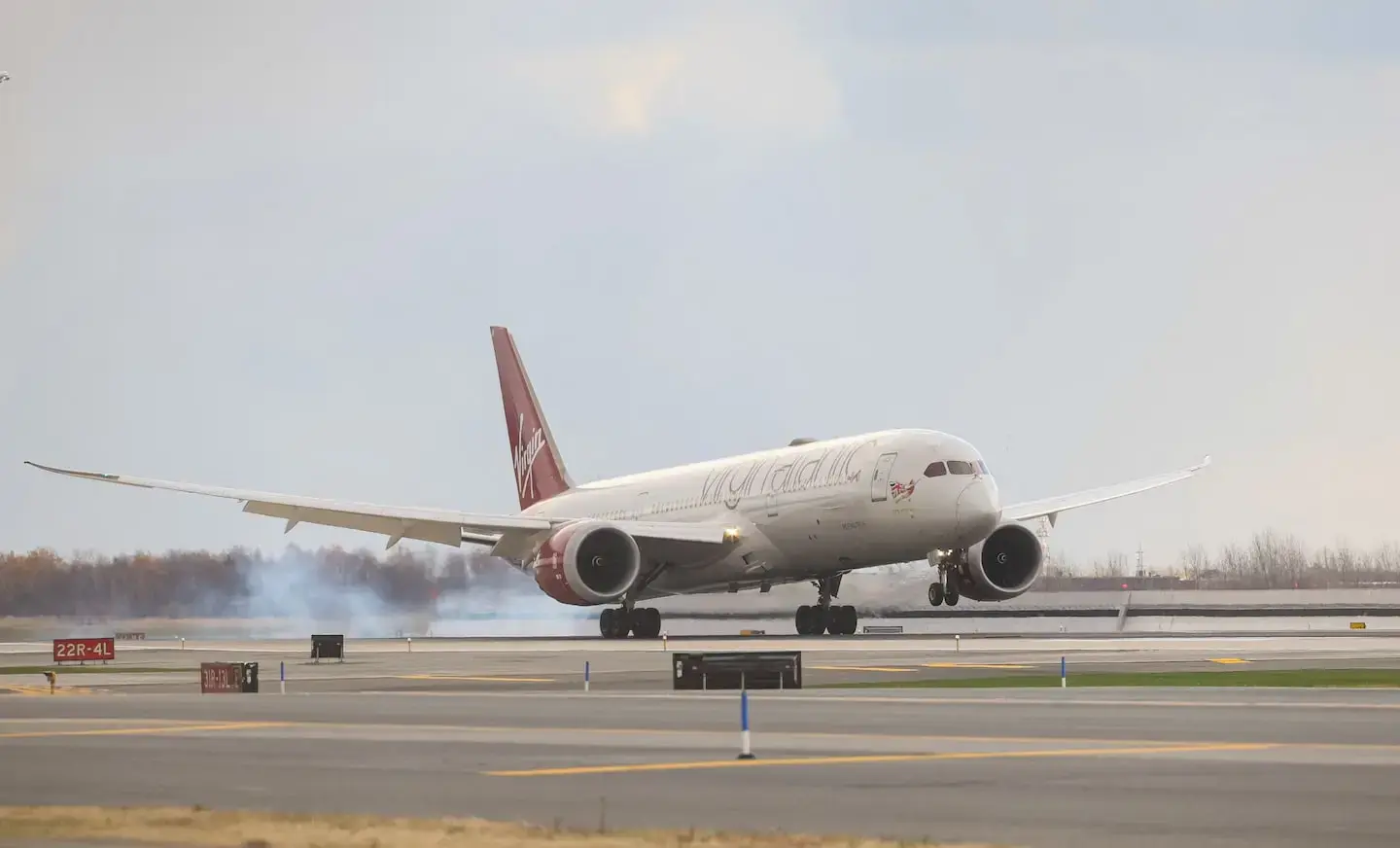- cross-posted to:
- climate
- cross-posted to:
- climate
cross-posted from: https://slrpnk.net/post/4426053
While it’s easy to dismiss this as a stunt, history suggests stunts are necessary to shift mindset. This flight alone solves nothing, but it will hopefully move the needle.
Anyways, that’s enough about your Mother-in-law.
it suffers from a chicken-and-egg problem: Airlines don’t want to buy SAF because it can be several times more expensive than standard aviation fuel
Only because we refuse to tax carbon, and increasingly subsidize fossil fuels.
Clean alternatives will be much more competitive once carbon is properly taxed, and we stop subsidizing polluting industries.
It is worse for jet fuel. The EU doesn’t tax jet fuel at all. The USA does tax jet fuel, but only at 28¢ a gallon.
I didn’t know the Northern Midwest had its own airline. 😶
Can it fly on beer and hotdish?
Virgin Atlantic’s 100% SAF flight is a one-time stunt, and the airline won’t regularly offer all-SAF flights. Standard jet engines aren’t designed to run on only sustainable fuel, and it is too expensive and rare for it to be practical for airlines to run all-SAF routes.
It was just a publicity stunt. There is currently no practical replacement for jet fuel.
Standard jet engines aren’t
So yes there is an alternative. But corperations have to be willing to invest. Just like consumers had to get engines upgraded when we moved to unleaded. And cars replaced when moving to ev or any other fuel.
An valid alternative dose not require everything to be identicle. Only corporate profiteering needs that.
No, but like E5, then E10 then E30, fuels can be mixed. Scandinavian offers (for a premium) to use 50% SAF for your journey if you’re willing to pay the premium. Of course they achieve that by committing to buy and mix in a proportion of SAF into some, if not all compatible, flights, rather than fuelling your plane specifically, but it’s still something.
The additionally cost hasn’t been that much, about 25%. That’s probably reasonable in term of how many plane journeys either shouldn’t be taken or moved to rail.
Make no mistake, this is a publicity stunt and you shouldn’t expect Virgin Atlantic to follow through. But SAF is feasible.
Cost: Currently, according to Argus Media, SAF is around $6.69/gal compared to $2.85/gal for jet fuel. Jet fuel accounts for between 15% and 20% of airline operating costs per US BTS reports. So using SAF would increase operating costs by 22-35%. Given that airfare fluctuates around 20% depending on whether or not it’s a tuesday, that’s actually not bad at all. (Also, I think the airlines could fully absorb that price increase if it weren’t for the deadweight of shareholders, stock value manipulation, and executive bonuses.)
Scaling: Despite how hard America tries, there’s only so much used fry oil. Biofuel needs farmland, and there isn’t enough farmland to serve the automotive sector. Given typical yields, we would need about 373m acres of biofuel farmland, which is every last inch of unused farmable land the US has. But aviation is a different story. According to the EIA, the US uses 8.81 million barrels of gasoline a day, 2.98 mb/d of diesel, but only 1.5mb/d of jet fuel. That’s an order of magnitude less fuel, and an order of magnitude less farmland.
Sustainability: This one’s trickier. Biofuel doesn’t need to be produced using fossil fuels, but usually is. The US’s 893m acres of farmland produce only 10.6% of our GHG emissions. I think the biggest concerns would be increased water, pesticide, and herbicide usage. I am also not sure of the impacts on other nations with different geography or agricultural potential. I am not well-equipped to quantify those impacts.
Are the emissions of biofuel any better than fossil fuels?
Tailpipe emissions? No. Round-trip emissions? Yes.
Biofuel sucks CO2 from the atmosphere while the plants or algae grow, then releases it again when the fuel is burned. It’s net-zero in the literal sense. They only have a GHG footprint if fossil fuels are used during the processing. In the US for example, during the processing of corn into ethanol, they burn natural gas for heat because it’s convenient and cheap. So the GHG footprint of American corn ethanol is approximately the same as gasoline.
Thank you for the excellent explanation, that makes sense.
Me irl
Removed by mod
So they stuffed the Alabama state fair into the fuel tank and it worked?





